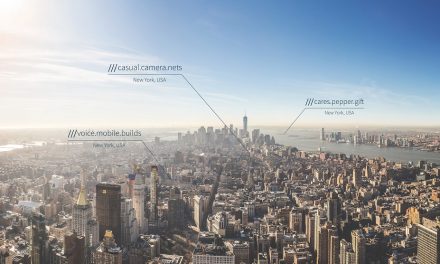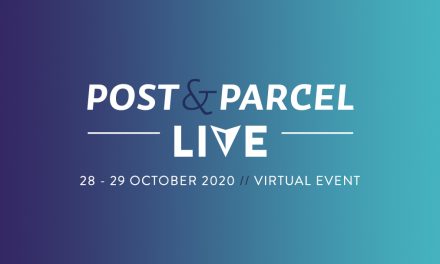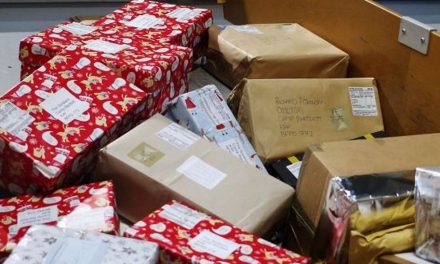
Aiming for a better normal
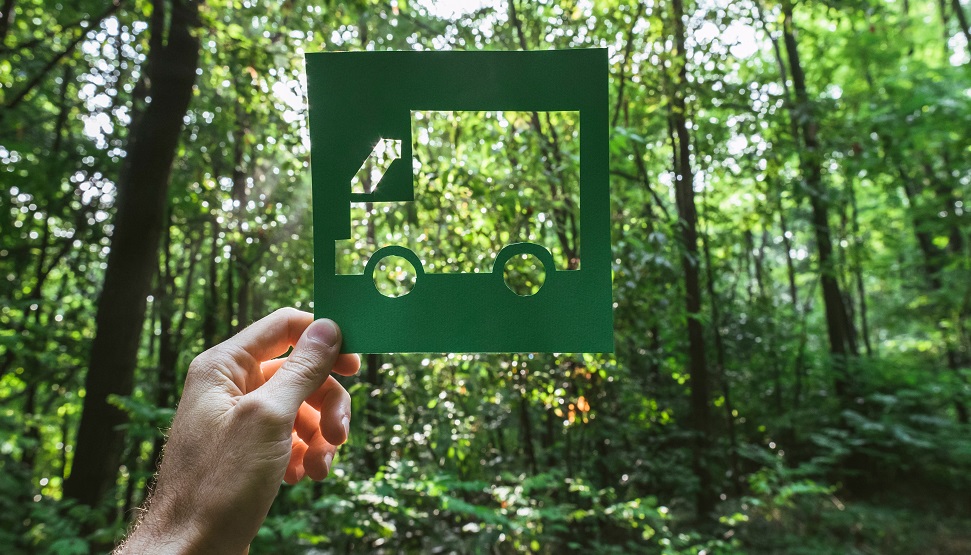
“It is our responsibility to figure out how can we come back to a better normal. We don’t want to return to the situation we had before the pandemic because it obviously wasn’t working – from an environmental perspective, for the people living in the cities and it wasn’t working for us as a business.”
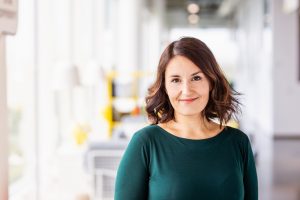 This June at Post&Parcel Live, Angela Hultberg, Head of Sustainable Mobility at IKEA Retail (Ingka Group) explained what the company is doing to meet their pledge of making 100% of their deliveries emission free by 2025. Here is a summary of her presentation.
This June at Post&Parcel Live, Angela Hultberg, Head of Sustainable Mobility at IKEA Retail (Ingka Group) explained what the company is doing to meet their pledge of making 100% of their deliveries emission free by 2025. Here is a summary of her presentation.
“The Ingka vision is to ‘create a better everyday life for the many people’ – we have had the same vision for 75 years but it has taken on a slightly different meaning from decade to decade.
When it comes to sustainable mobility it is clear that if we want to create a better life for people then being able to breathe fresh air is a pretty basic need.
Unfortunately, this need is not always met in cities and we need to do something.
We have 374 stores in 30 different countries and in 2019 we had 839 million visits to our stores and another 480 million visits to centres. With an additional 2.6 billion visits to our website it is fair to say we interact with quite a few people!
We work a lot with sustainability in many areas, for example we work with refugee programmes, we work with forestry and we own more wind turbines than stores, and we are really proud of this work. But we also know that doing good is good business – for people, planet and business alike.
In terms of mobility at Ingka group we see a lot of trends in the world having a huge impact on us as a business.
Impact of urbanisation and e-commerce
Firstly, urbansiation is still going strong with more and more people moving into city centres. We see a change in customers shopping behaviours that is heavily affecting our business and e-commerce is of course increasing each and every year.
Secondly e-commerce – since the pandemic began it is fair to say e-commerce has exploded and with e-commerce obviously comes more and more deliveries into city centres and that of course comes with a huge impact to the cities themselves.
Thirdly we are seeing new mobility solutions emerging both for people and businesses. Car ownership for example is no longer a given, especially amongst millennials and those who are younger – they see a car is too expensive and in many cases not needed because everything they need is in the city centre where they live. What they can’t reach by foot or by public transport they can usually get via their cell phones instead. People are finding new ways of moving around and that has an impact on stores like IIKEA.
Our stores are normally located outside of city centres and it is really important that our customers can actually come and visit and if not, we have to think about how we can come closer to the customers. All these things have a huge impact on our business as a retailer.
 There has never been a time of greater change
There has never been a time of greater change
If we focus on last mile specifically – the amount of deliveries we do is increasing all the time both because people order more and also online sales are increasing and everything we sell online needs to be delivered. This has an impact on cities. More delivery means more vehicles, more CO2 emissions, more air pollution, more noise pollution and more congestion.
I don’t want to be those sustainability people who paints a really bleak picture of the world but quite frankly this is what we are doing to our cities.
A new report that came out in January 2020 from the World Economic Forum shows that inner city traffic is increasing
The number of delivery vehicles in the top 100 cities globally will increase by 36% until 2030.
Cities are saying if nothing happens, then inner city traffic will become significantly disturbed in the coming years.
Personally, I would say inner city traffic is already significantly disturbed – you only have to walk through the streets of London or New York during peak hours in the morning or afternoon and you find it is hard to get around in the car. You will see delivery vehicles double or tripled parked to make deliveries and it is not a healthy situation for anyone and it is something we need to do something about.
This was the situation before COVID-19 hit, and now we are seeing a significant connection between air pollution and sickness since the pandemic began. This is not acceptable. We already know air pollution kills 7 million people a year according to the WHO and we know a big proportion of heart disease and strokes are as a result of air pollution. We know this and it is our obligation to do better.
On the flip side we have seen during the pandemic how quickly this level of pollution can decrease. In India they have a new skyline – they can see the mountains again after many years. We have seen air pollution levels dropping to 1950 levels in the UK and it happened really fast – this shows it can be done.
Obviously this isn’t the ideal way to achieve it. Now it is our responsibility to figure out how can we a come back to a better normal.
No one size fits all
What we have discovered at Ingka is that this is a complex problem. We have made a firm commitment that by 2025 100% of our deliveries will be zero emissions, predominantly using electric vehicles. We have pledged to transform our fleet and install a charging infrastructure. However we have found there is no one way of achieving our vision. Especially when comes to delivery. We need to find the best solution for each market.
We would be incredibly happy if we could find a solution we can scale globally but what works in China might not work in Europe, and what works in Europe might not work in North America.
It is about finding all those different solutions and slowly building pieces of the puzzle to essentially make a more sustainable future for all of us.
And we have also found it is not only about the vehicles it is about finding new ways of working, new collaborations, work out a charging infrastructure, lower the cost of the vehicles and also find new ways of delivering, of meeting the customer, being more efficient with everything from packaging and storing to returns when customers when want to send the goods back. It’s a giant puzzle and for me it is really exciting being part of making it happen.
Collaboration is key
Once Ingka Group made the zero emissions pledge we have been working to fulfil the commitment. So far we have learnt collaboration is absolutely key. We are simply a home furnishing retailer wanting to make our operations more sustainable and we outsource all our home deliveries to third parties.
We have realized it is not enough to tell service providers we only want electric delivery services – we have had to engage with other partners – from utility companies to local policy makers to other retailers and it is only when everyone gets to the table and discusses how to go green in a specific region that we are able to reach solutions.
Sometimes we need to look for new partners like we did in Shanghai where we are already 100% electric when it comes to home deliveries.
In Shanghai we have worked with our transport service provider as well using an EV sharing platform. This was a new way of operation that allowed us to access both vehicles and charging infrastructure, and it took months off the project timeline. Now, are now starting to roll out this solution across China because it worked so well, and already 50% of our deliveries in China are made using EVs.
We quickly realized the biggest issue is getting that first truck onto the streets. When that is done, you can see how the technology works and trust it, so that’s what we did – we have now deployed electric vehicles for last mile in 19 markets and more are coming this year.
No perfect solution
What we have learnt is there isn’t a perfect vehicle on the market yet but there are vehicles good enough to get projects started and then you can work with your partners and co-create to make them better to fit your model or market. Markets are not comparable and require specific solutions. For example somewhere like Norway where electric vehicles are very mainstream and there is already an infrastructure can’t be compared to a market like Russia were electric vehicles are not as common.
While electric vehicles are great for our cities and help reduce air pollution and CO2 emissions they only solve part of the problem as electric trucks take up same space as combustion engine trucks so they don’t solve the issue of congestion.
To tackle that we are also looking to bring in new modes of transport for our deliveries. We are currently looking at cargo bikes and in Paris we are piloting using an electric barge to transport goods and we are also working with parcel locker providers and looking at how we can replenish lockers during the night when there are less vehicles on the road.
We are also finding all these things which are good not just from an environmental perspective but they also help improve the customer experience and making delivery more convenient for them.
Act now!
The main thing we have learnt in our journey is that we can’t wait for perfect solutions because then we will end up waiting forever. This is about taking what is already available today which can help your reach your target audience and just deploying it and then working to make it better.
The pandemic has provided an opportunity for companies to reflect and find new ways of working that are better for all the people. We are always thinking about what the new normal will look like – do we want go back to how it was before this pandemic? To a situation when we already know we were on a very unsustainable path when it comes to last mile and we knew things were only getting worse?
Will e-commerce sales go back to where they were before the pandemic or will they increase more because people have changed their habits permanently? And how do we then handle that?
Do we want to keep sending more and more trucks into cities? Can we continue to do last mile delivery the same way we have been for decades or is it time for a systematic change or a transformation in the industry?
For Ingka Group we are saying it is time for a change – we have our 2025 target and we intend to keep that.
We hope to find partners, peers and service providers to go on this journey with us. It is my strong belief that you are either ready, you want to see this happen, you have a vision of a more sustainable future and you come on this journey with us or I personally think you will be left behind.
Sustainable transportation isn’t something that is coming or going to happen, it is something that is happening now and I’m hoping we can all work together to create healthy and sustainable cities where people can thrive and where you can actually can breathe air which is not toxic. It seems such a basic thing that we should all make happen sooner rather than later, preferably today.”








